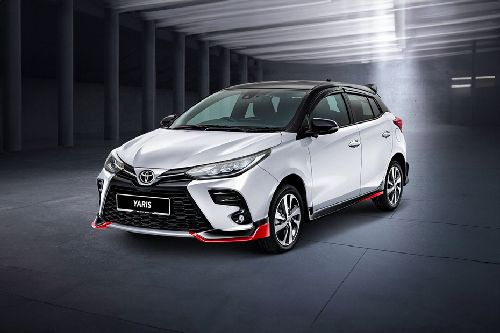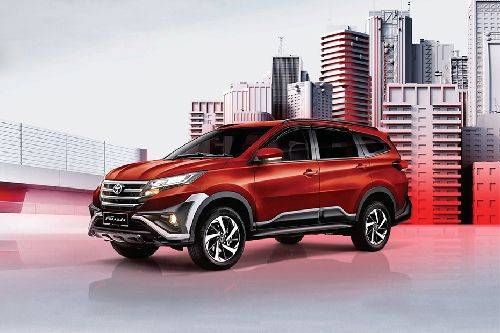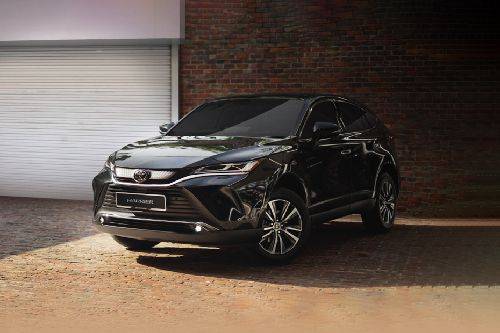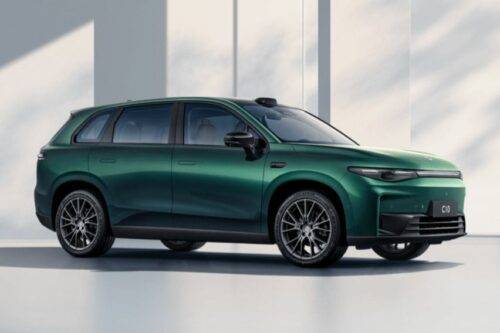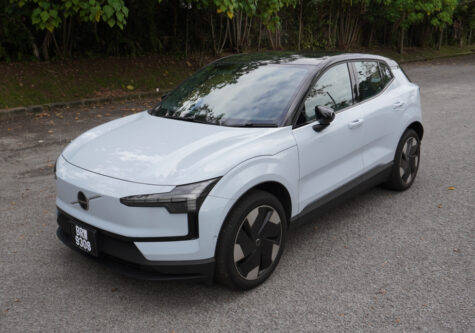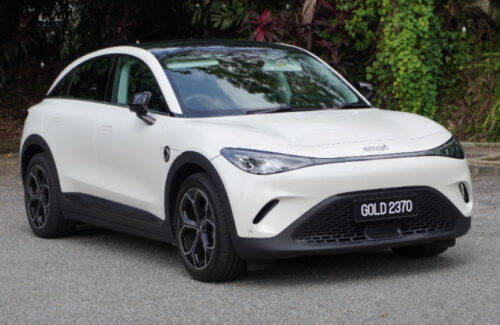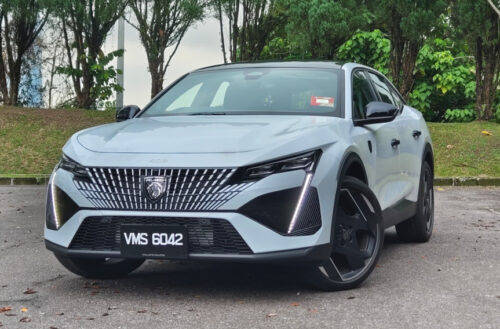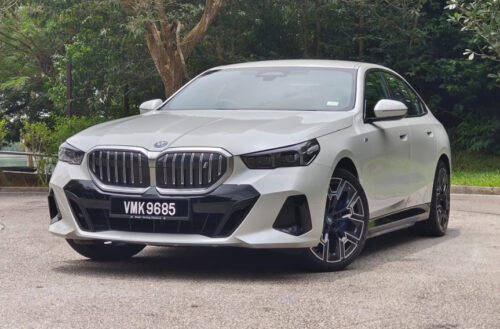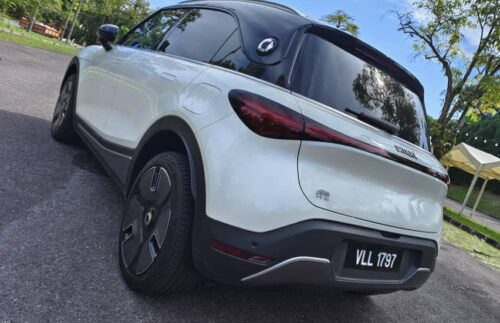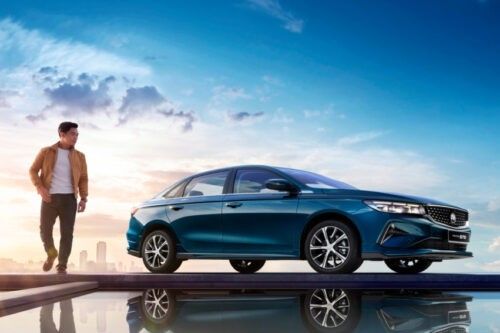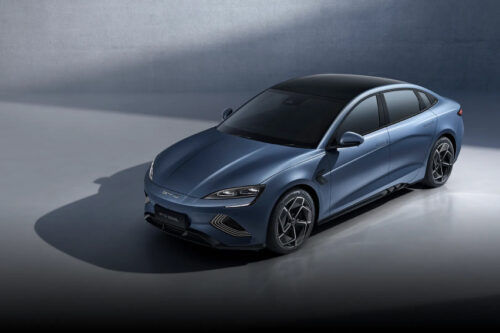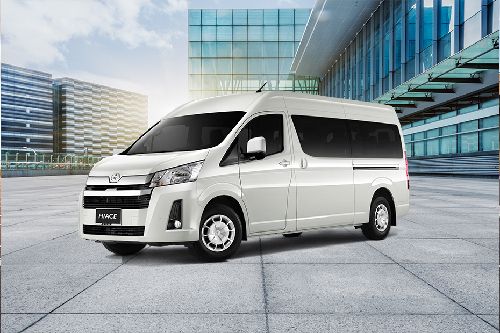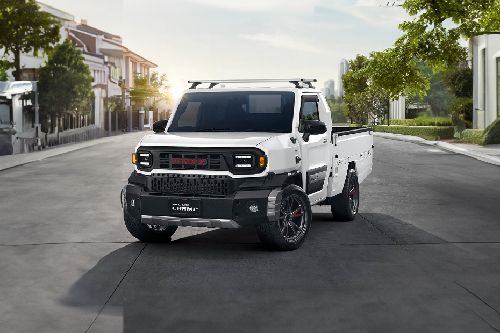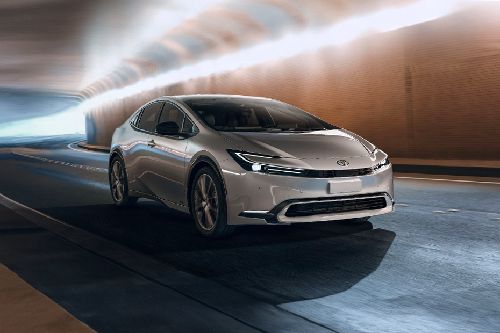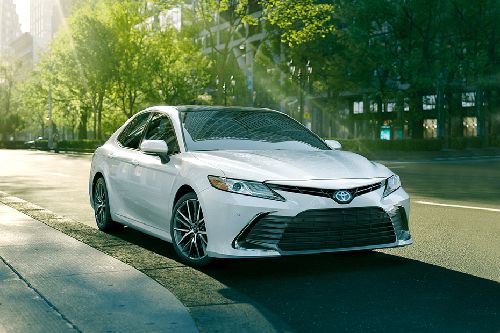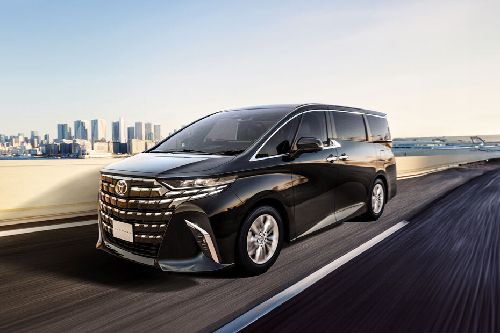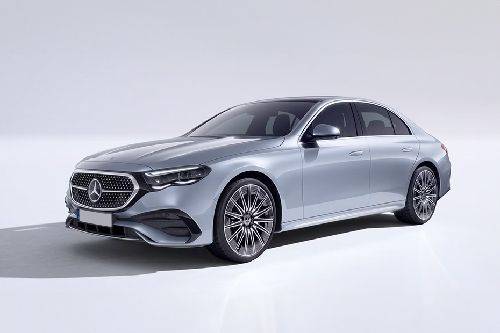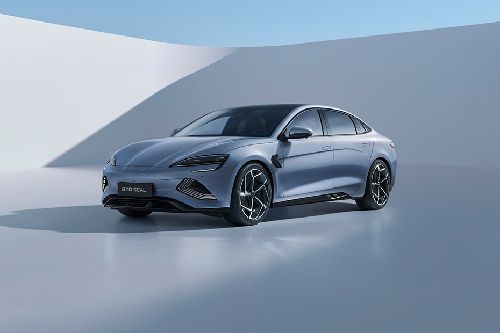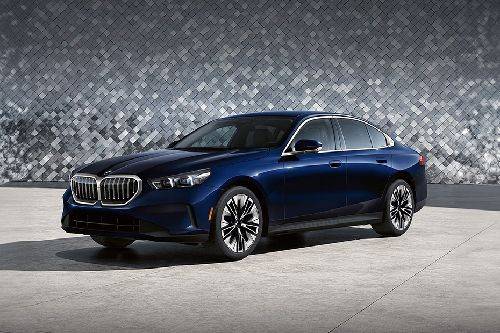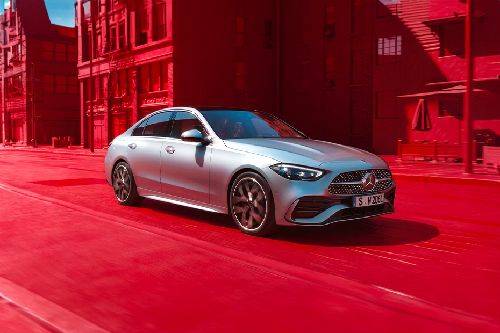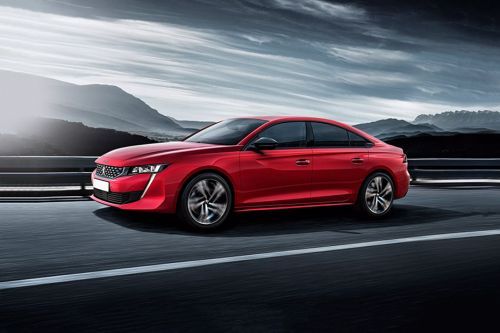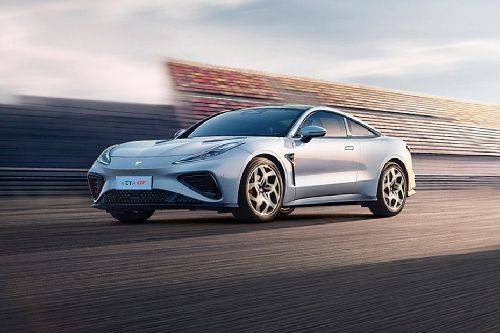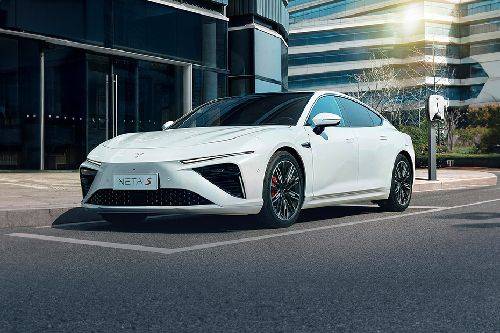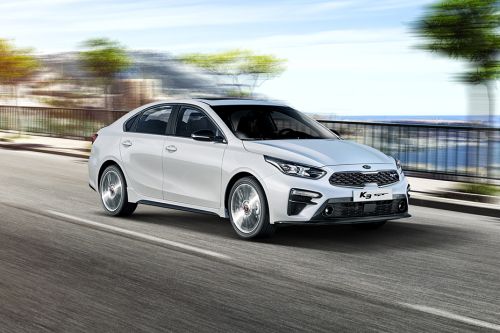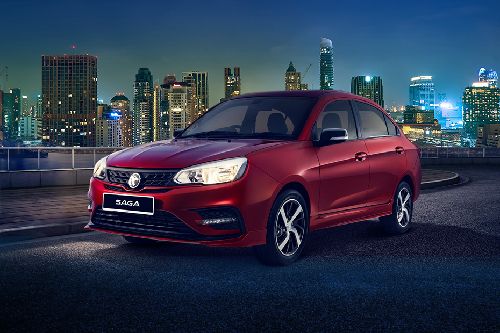Comparison: Toyota Vios Hybrid vs Honda City RS e:HEV - Which will reign supreme?

A few weeks ago, we explored the anticipated debut of the Toyota Yaris Cross Hybrid in our local market this year, casting some doubt on whether the Toyota Vios Hybrid would also be launched within the same timeframe.
KEY TAKEAWAYS
Is the Toyota Vios Hybrid available in other SEA countries?
Not just yet, it has not broken cover worldwideIs it expected to be cheaper than the Honda City hybrid?
That's a possibility if they assemble the vehilce hereIt's time to revise that skepticism as we've just had some new information. A reliable source at Toyota has confirmed that UMW Toyota is indeed planning to launch the Vios Hybrid within the same timeframe. In light of this revelation, it seems fitting to delve into a comparison between the Malaysian spec facelifted Honda City RS e:HEV and the yet to be launched Toyota Vios Hybrid.
The Toyota Vios Hybrid has yet to make an appearance worldwide, but looking at the many stories and speculations from various sources, it should be with us this year.
However, since we pretty much know most of its features, let's dive into the details and see how these two models might stack up against each other.
1.Dimensions and Space
However, its width (1,748 mm), height (1,467 mm), and wheelbase (2,600 mm) remain the same as those of the pre-facelift model.
This new Vios iteration is constructed on the Daihatsu New Global Architecture (DNGA) platform, contributing to its larger size compared to the previous model. Most notably, the wheelbase has been significantly extended by 70 mm, now measuring 2,620 mm.
Comparison:
In terms of dimensions, the Honda City RS e:HEV surpasses the Toyota Vios by 164mm in length and 8mm in width, but the Vios counters with a 13mm in height and a 20mm longer wheelbase.
This suggests that the Honda City RS e:HEV might offer more interior space, particularly in the cabin area, thanks to its greater length and width. However, dimensions don't always tell the whole story.
The Toyota Vios' marginally taller stature and extended wheelbase hint at possibly more headroom and legroom, especially in the back seats. Yet, its coupe-like design has reduced rear headroom, and while its legroom is generous, it might not necessarily surpass that of the City. To add to this, it's expected that the battery for the hybrid system to be placed under the rear seats, possibly compromising the head room even further.
Plus, Honda is known for its remarkable interior packaging, often creating surprisingly spacious interiors that seem to defy the car's external dimensions.
Ultimately, the actual roominess will depend on the interior design and layout. Based on external dimensions and our experience, the Honda City appears to have a slight advantage in interior space, although this might vary depending on individual design elements.
2.Powertrain Performance
Honda City RS e:HEV: The Honda City RS e:HEV is powered by a 1.5-litre Atkinson-cycle DOHC i-VTEC engine, complemented by two electric motors, as part of Honda's advanced e:HEV hybrid system.
This setup delivers a combined output of 109 PS and a peak torque of 253 Nm. The innovative powertrain utilizes an intelligent power unit (IPU) with a lithium-ion battery to efficiently manage energy distribution between the engine and electric motors.
The car also features an electronic continuously variable transmission (e-CVT) for smooth and responsive acceleration.
Toyota Vios Hybrid: The Vios Hybrid is expected to feature a robust 1.5-litre engine featuring Daihatsu's e-Smart Hybrid system. This combination, utilizing a simpler and more cost-effective setup, is likely to make the Vios Hybrid more affordable than its rival, the City e:HEV RS, which employs a more complex two-motor series-parallel hybrid unit.
The 1.5-litre Atkinson Cycle engine in the Vios Hybrid, coupled with an electric motor, is anticipated to deliver about 90PS and 121Nm from the petrol engine, while the electric motor might contribute up to 79PS and 141Nm. Interestingly, this setup mirrors that of the Yaris Cross Hybrid, indicating a shared synergy in Toyota-Daihatsu hybrid technology.
Comparison: Honda's current lineup of hybrid cars, all bearing the RS badge, indicates a focus on driving enjoyment and dynamic performance in their approach to vehicle hybridization.
These hybrids are designed with a zestful edge, offering a spirited driving experience. In contrast, Toyota's approach to hybrid vehicles, particularly their SUVs like the Corolla Cross Hybrid, prioritizes fuel efficiency over thrill.
The Corolla Cross Hybrid's philosophy centers on maximizing fuel economy rather than delivering an exhilarating drive.
Consequently, while the Honda City RS e:HEV may offer a more engaging and lively driving experience, the Toyota Vios Hybrid is expected to excel in terms of fuel economy, making it a more cost-effective choice for drivers focused on efficiency.
3.Safety and Convenience
Honda City RS e:HEV: When it comes to safety, the RS is packed with six airbags, Vehicle Stability Assist (VSA), Hill Start Assist, and an Emergency Stop Signal, not to mention Honda's innovative LaneWatch camera on the left side for added visibility.
The RS also stands out as the only City model equipped with Honda Sensing, a first for Honda in this segment in Malaysia. This isn't just a safety package – it's a guardian angel.
Featuring Adaptive Cruise Control (ACC) for effortless long drives, Collision Mitigation Braking System (AEB) for those unexpected moments, and Forward Collision Warning (FCW) to keep an eye out for what's ahead. Add in the Lane Keeping Assist System (LKAS), Road Departure Mitigation (RDM), Lane Departure Warning (LDW), and Auto High-Beam (AHB), and you've got a car that doesn't just drive – it practically thinks for you.
Toyota Vios Hybrid: While the exact safety features of the Vios Hybrid are yet to be detailed, we can anticipate a comprehensive suite of safety technologies. Drawing insights from the current top-tier model of the regular Vios, the Hybrid variant is expected to be equally, if not more, impressive.
It is likely to be outfitted with six airbags and a robust array of passive safety systems including Vehicle Stability Control (VSC), Traction Control, ABS, EBD, Brake Assist, Hill Start Assist, Automatic Door Locks, and parking sensors for added convenience.
In terms of driver assistance, the Vios Hybrid is poised to include an advanced lineup: Lane Keeping Control for maintaining your lane, Auto High Beam for optimal visibility, and Adaptive Cruise Control for a more relaxed driving experience.
Additionally, a Pre-Collision System (Autonomous Emergency Braking) to prevent accidents, Lane Departure Warning and Prevention to keep you on track, Front Departure Alert to notify you when it's safe to proceed, Pedal Misoperation Control to avoid unintended acceleration, and a Blind Spot Monitor with Rear Cross Traffic Alert for all-around awareness. awareness.
The icing on the cake could be a 3D Panoramic View Monitor, providing a comprehensive view of the car’s surroundings. With this array of features, the Vios Hybrid is gearing up to be a paragon of safety and driver assistance.
Comparison: Comparing the safety and convenience features of the Honda City RS e:HEV and the Toyota Vios Hybrid, it becomes evident that both vehicles are impressively equipped, each with its unique strengths.
While the Honda City RS e:HEV offers a robust and innovative safety package, especially with the Honda Sensing technologies and the unique LaneWatch camera, the Toyota Vios Hybrid, with its anticipated range of advanced driver assistance systems such as a 3D Panoramic View Monitor, could offer a slightly more comprehensive suite of safety and convenience features.
The final verdict, however, will depend on the confirmed features of the Vios Hybrid upon its release.
4.Price Speculation
Although the official pricing for the Vios Hybrid remains a closely guarded secret on the global stage, we can venture an educated guess by drawing parallels with the Corolla Cross and its Hybrid variant and consider the features it promises, along with the current Vios lineup.
Our prediction places the Vios Hybrid's price point just a notch below that of the Honda City RS e:HEV, especially if it's locally assembled suggesting a competitive yet slightly more affordable option in the same market segment.
With the Honda City RS e:HEV currently tagged at RM111,900, the Vios Hybrid is poised to offer a compelling alternative for budget-conscious consumers looking for similar features and quality.
The accuracy of this speculation remains to be confirmed, and all eyes are on the impending global unveiling and launch of the Vios Hybrid to reveal its true market positioning.
Conclusion
In sum, both the Honda City RS e:HEV and the Toyota Vios Hybrid present compelling options in the B-segment hybrid sedan category, each with its unique strengths.
Prospective buyers will have to weigh these factors against their personal preferences and needs to make the best choice. With the imminent arrival of the Vios Hybrid worldwide and Malaysia, the competition in this segment is sure to heat up, offering consumers more quality options to consider.
Also Read: Toyota Vios Hybrid to be introduced soon; will compete against City e:HEV RS
Sell your car at the best price
 Verified and genuine buyers
Verified and genuine buyers
Toyota Vios vs Honda City Comparison
Toyota Car Models
Don't Miss
- Latest
- Popular
You might also be interested in
- News
- Featured Stories
- Latest
- Upcoming
- Popular
Compare & Recommended

|
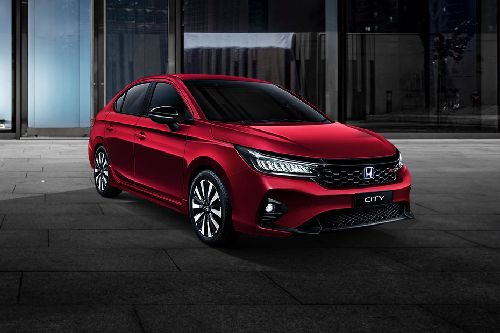
|
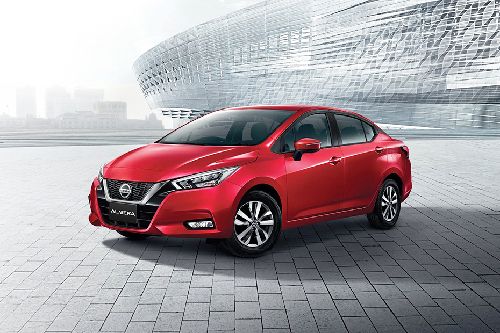
|
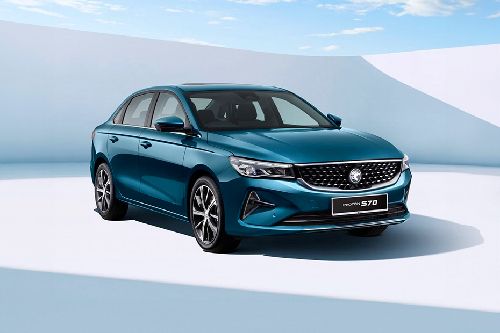
|

|
|
Seating Capacity
5
|
5
|
5
|
5
|
5
|
|
Engine
1496
|
1498
|
999
|
1499
|
1498
|
|
Power
106
|
119
|
99
|
148
|
112
|
|
Transmission Type
CVT
|
CVT
|
CVT
|
Dual Clutch
|
CVT
|
|
|
Trending Sedan
- Latest
- Upcoming
- Popular
Compare
You can add 3 variants maximum*- Brand
- Model
- Variant
Choose your city to find options nearby



